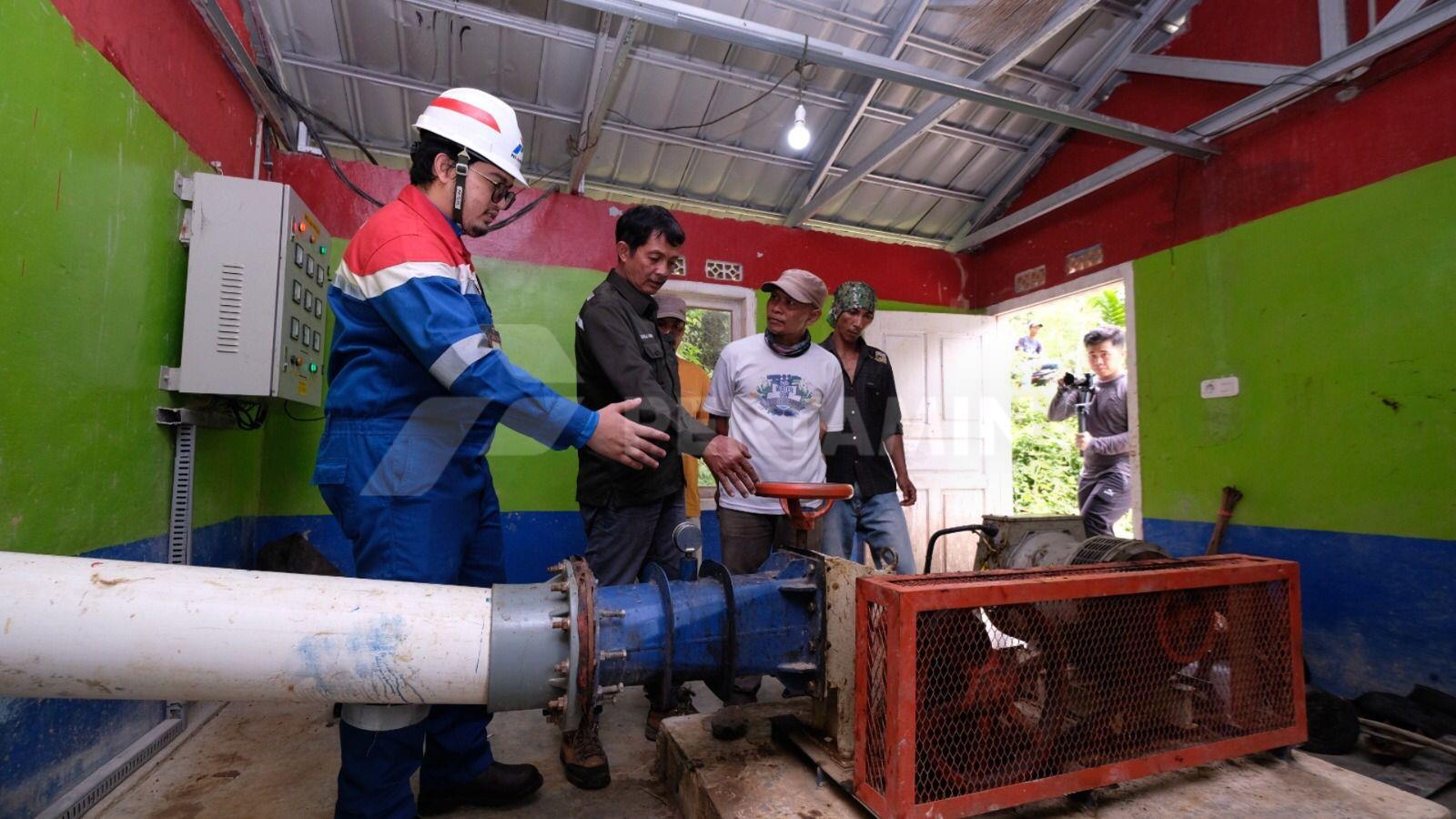
KPI Initiative to Supporting Decarbonization: Transforming Water Resources and Sunlight to Foster Energy Equality
Singapure, May 21, 2024 - The absence of electricity is now a thing of the past in Singapure Village, Kota Agung District, Lahat Regency, South Sumatra. Through the Desa Energi Berdikari (Independent Energy Village) program, PT Kilang Pertamina Internasional (KPI) is realizing the energy transition for communities in the 3T area. Singapure Village is one of the remote villages in South Sumatra that has been without electricity for decades. The village has consistent water flow potential and good sunlight exposure.
"KPI, through the Plaju Unit, has developed the Desa Energi Bedikari program. This program encourages its community to receive electricity from Micro Hydro Power Plants (PLTMH) with a capacity of 28 kWh. Additionally, there are Solar Power Plants (PLTS) with a capacity of 8.2 kWp," said Corporate Secretary of KPI, Hermansyah Y Nasroen.
Hermansyah emphasized that this program's uniqueness lies in its concept that is based on sustainable community empowerment. It means the sustainability of this program depends on the active participation of all group members.
The benefits of this program are immediately felt by the community. "Through this program, a village that was previously dark is now illuminated. Its light illuminates not only the night but also the hopes of its residents. With electricity, not only energy access but also educational access opens up. Children can study at night, and families can gather under the shelter of light," explained Hermansyah.
According to Hermansyah, the program selection is inseparable from the natural resource potential in the village. "The abundant water flow is one of the natural potentials that need to be supported and developed," said Hermansyah.
The abundant water flow that serves as hope through PLTMH provides many opportunities. "This program opens up energy of kindness and becomes an initiative to support decarbonization efforts, thus driving KPI to continue its commitment to become a world-class oil and gas company that demonstrates concern for community development and empowerment, especially in the new and renewable energy potentials utilization," explained Hermansyah.
The story of Singapure Village is not the only Desa Energi Berdikari program implemented by KPI. Additionally, there are also Hybrid Power Plants (PLTH) using solar and wind energy in Ujungalang District, Central Java. There is also the Rawabening program that utilizes limited land with hydroponic planting media powered by solar energy in Balikpapan, East Kalimantan.
In Riau Province, the DEB program initiative is carried out through horticultural farming programs using solar panels in Sei Pakning and agrotourism programs utilizing increased educational tourism and solar energy in Dumai. Finally, through the Klayas Independent program, this program supports food self-sufficiency and energy access using solar panels in Klayas Village, Sorong, West Papua.
"The Desa Energi Berdikari program is one of the initiative programs supporting decarbonization efforts. Through this program, the KPI Group has successfully promoted 35,500 peak watt renewable energy utilization, reduced over 126,000 CO2eq tons of carbon emissions per year, and provided benefits to more than 600 beneficiary families," Hermansyah clarified.
This Desa Energi Berdikari program also follows the KPI TJSL blueprint. "This program is proof that KPI continues to commit to supporting 3T communities in providing clean energy access and supporting global efforts to achieve net zero emissions by 2060 through sustainable programs development and renewable energy utilization," said Hermansyah.
Vice President of Corporate Communication of PT Pertamina (Persero), Fadjar Djoko Santoso, stated that Pertamina continues to develop the Desa Energi Berdikari Program. Besides improving the economy of the community, this program is also capable of reducing emissions by up to 729,127 tons of CO2eq per year by the end of 2023.
"This program will continue to be expanded as a form of Pertamina's commitment to sustainable energy development by involving communities in available renewable energy sources utilization in villages," concluded Fadjar.
PT Kilang Pertamina Internasional (KPI) is a subsidiary of Pertamina engaged in the main business of oil refining and petrochemicals following the ESG (Environmental, Social & Governance) principles. KPI is also registered with the United Nations Global Compact (UNGC) and is committed to the Ten Universal Principles of the UNGC in operational strategies as part of ESG implementation. KPI will continue to conduct its business professionally to realize its vision of becoming a world-class oil refinery and petrochemical company with environmental awareness, social responsibility, and good corporate governance.
Pertamina, as a leading company in the energy transition, is committed to supporting the Net Zero Emission 2060 target by continuously promoting programs that directly impact the Sustainable Development Goals (SDGs) achievement. All these efforts align with Environmental, Social, and Governance (ESG) implementation across all Pertamina's business lines and operations.